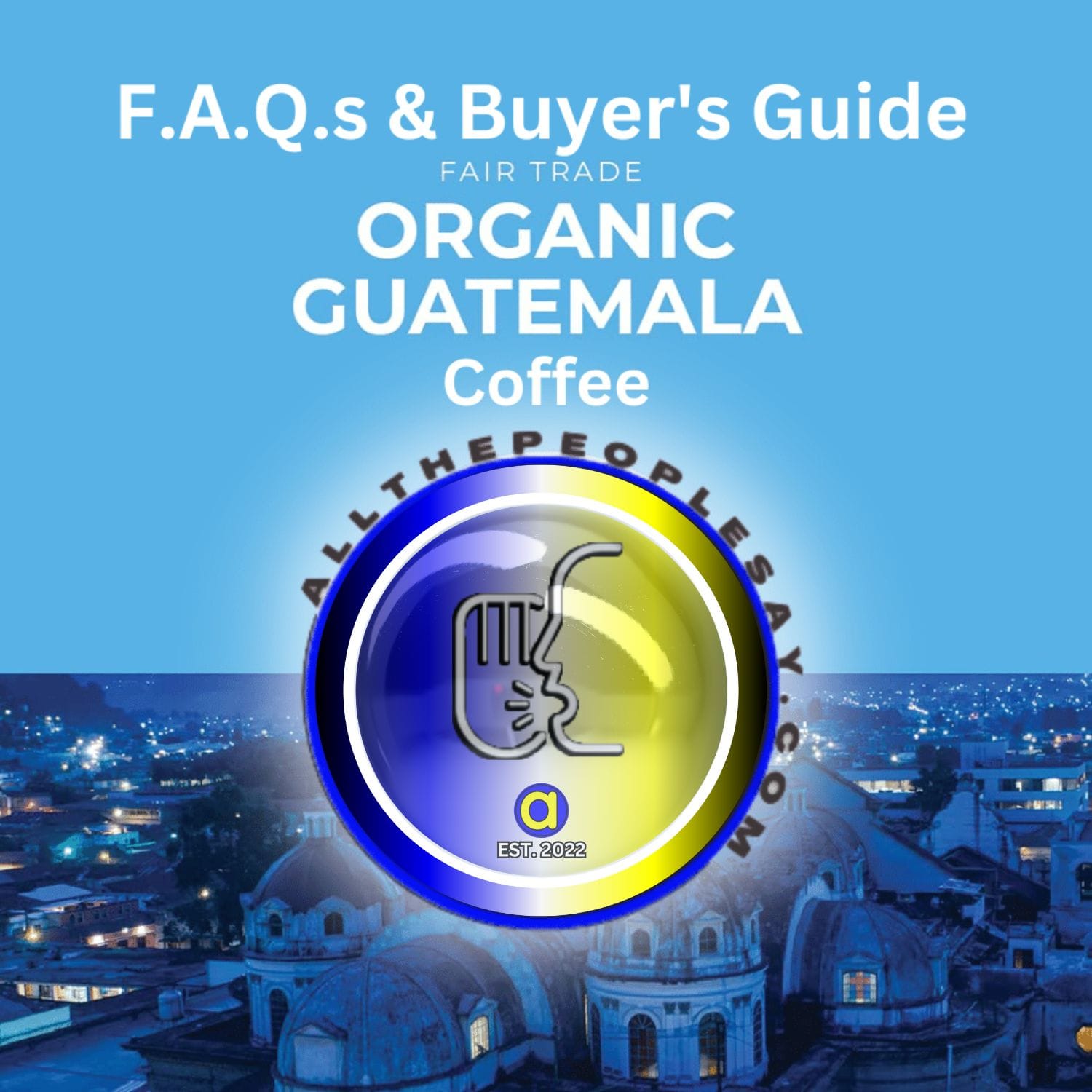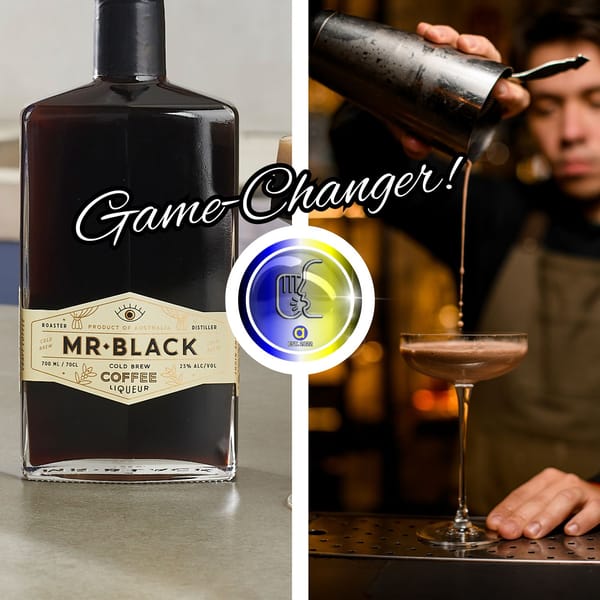Is it worth paying a little extra for fairtrade coffee? Is it good coffee?
There are a lot of different certifications and labels. You may have a lot of questions about this type of coffee.
There is a lot of information out there about fairtrade coffee, and it can be hard to know where to start. It's important to understand what "fairtrade" means, and the benefits of buying fairtrade coffee.
We put together this buyer's guide to help you make an informed decision about which fairtrade coffee is best for you. In it, we answer the most frequently asked questions about fairtrade Guatemala medium roast coffee. We hope you find it helpful!
What is special about Guatemalan coffee?
Guatemalan coffee is special because its delicate balance of sweetness and acidity is loved by coffee drinkers all over the world. The coffee beans are grown in high altitudes and volcanic soil. The combination of intense sunshine and cool temperatures produce a humid climate that creates the perfect conditions for growing coffee beans giving them their rich and intense flavor. Which are then roasted to perfection
How Coffee Becomes Fair Trade Certified?
It's a rigorous process, but it's worth it to ensure that coffee growers are treated fairly and compensated equitably for their hard work. Many of them are forced into child labor.
But by becoming Fair Trade certified coffee growers are paid a fair price for their beans, which helps to ensure that they're able to maintain a livable wage and provide for their families. They're also offered training and education opportunities, which help them to improve the quality of their coffee and increase their yields.
Most importantly, coffee growers are guaranteed a fair price for their coffee, regardless of the volatile market conditions. This ensures that they're able to earn a living wage no matter what happens in the industry.
Fair Trade Coffee Versus Direct Trade Coffee
There is a lot of confusion about the difference between "fair trade" and "direct trade" coffee. The main difference is that fair trade coffee must meet certain social and environmental criteria, while direct trade coffee does not.
With fair trade coffee, the farmer receives a set price for his coffee, regardless of the market conditions. With direct trade coffee, the farmer receives a higher price if the quality of his coffee is high, but he also assumes more risk because he could potentially sell his coffee at a loss if the market conditions are unfavorable.
Some people argue that fair trade certification actually hurts farmers because it artificially keeps prices high. Others argue that fair trade certification is better than no certification at all. But in general, both fair trade and direct trade coffee are more expensive than non-certified coffee because the farmers are paid more for their beans.
Why Should I Buy Fair Trade Coffee?
There are many reasons to buy fair trade coffee. First and foremost, it's a way to support coffee growers who are treated fairly and compensated equitably for their hard work.
By buying FairTrade coffee, you're also helping to promote sustainable farming practices and improve the quality of life for coffee growers and their families. In addition, you're supporting a system that encourages transparency and accountability throughout the supply chain.
Finally, buying fair trade coffee is simply a good way to enjoy your coffee knowing that you're making a positive impact on the lives of others.
What Are The Criteria For Fair Trade Certification?
There are many different criteria that coffee must meet to be certified as "fair trade."
First, the coffee must be grown in accordance with strict environmental standards. This means that farmers must use sustainable farming practices that protect the natural resources on their land.
In addition, coffee growers must provide their employees with fair wages and good working conditions. They must also offer training and education opportunities to help workers improve their skills.
Finally, coffee growers must commit to transparency and accountability throughout the supply chain. This helps to ensure that all stakeholders in the supply chain are treated fairly.
How Do I Know If My Coffee Is Fair Trade Certified?
The best way to know for sure if your coffee is fair trade certified is to look for the Fair Trade certification logo on the packaging. This logo is your guarantee that the coffee has been grown and processed according to strict social and environmental standards.
You can also look for the Fair Trade Certified label on coffee bags and other products from companies that support the fair trade movement. This label means that the company has committed to sourcing all of its coffee from fair trade certified farms.
Is Guatemalan coffee a medium roast?
Well, it depends on who you ask. Some people might say that Guatemalan coffee is a medium roast because the beans are roasted for around 14 minutes. However, other coffee aficionados might consider Guatemalan coffee to be a light roast because the beans are only roasted until they reach an internal temperature of around 356 degrees Fahrenheit.
So really, it's up to interpretation. But one thing's for sure: Guatemalan coffee definitely has a unique flavor that sets it apart from other coffees. If you've never tried it before, I recommend giving it a shot! You just might fall in love with its complex and earthy taste profile.
Is Guatemalan coffee good?
Guatemalan coffee beans are some of the most sought-after in the world. They're known for their full body and rich flavor. The beans are roasted to a medium level, which brings out their delicate sweetness and fruit notes.
Is Guatemalan coffee high in caffeine?
Yes, Guatemalan coffee is high in caffeine. In fact, it's one of the highest-caffeine coffees available. Caffeine levels can vary depending on the variety of coffee beans and how it's roasted, but on average, Guatemalan coffee contains around 260 milligrams of caffeine per cup. That's more than twice as much caffeine as regular coffee.
Is Guatemalan Coffee arabica or Robusta?
The vast majority of Guatemalan coffee is arabica. However, a small percentage is a robusta. Robusta coffee has a higher caffeine content and typically tastes harsher than arabica coffee.
Is Guatemalan coffee less acidic?
Yes, it is less acidic. In fact, Guatemalan coffee is known for its low acidity and smooth flavor. It's a great choice for people who don't like the bitterness of some coffees.
Is Fairtrade coffee actually fair?
There's a lot of debate on whether or not Fairtrade coffee is actually fair. Critics argue that the higher prices paid to farmers don't always result in better working conditions or increased wages and that some Fairtrade producers are actually worse off than conventional producers.
On the other hand, supporters of Fairtrade coffee argue that it's still better than the alternative and that it offers some benefits to farmers who wouldn't otherwise have access to markets. They also say that Fairtrade certification helps to ensure that farmers are treated fairly and receive a fair price for their coffee.
So it really depends on who you ask. There are pros and cons to both sides of the argument. The bottom line is that you should do your research and make sure you're choosing a product from a farm that's been certified and environmentally sustainable.
Is Guatemalan coffee stronger?
Yes, Guatemalan coffee is often thought to be stronger than other coffees. This is because the beans are grown at high altitudes, which makes them denser and results in a more intense flavor. Additionally, the climate in Guatemala is ideal for growing coffee beans, and the beans are hand-picked to ensure only the best quality coffee is harvested.
Where is the best coffee grown in Guatemala?
Well, some say:
The best coffee in Guatemala is grown in the Huehuetenango region. This highland area lies at an altitude of between 1,500 and 2,000 meters, and the coffee beans here are known for their strong flavor and rich aroma.
Others Say:
The best coffee in Guatemala is grown in the highlands near Antigua. The rich volcanic soil and cool mountain climate make it the perfect place for growing coffee beans. The coffee from this region is known for its full-bodied flavor.
You be the judge...
What coffee is similar to Guatemala?
There are a lot of different coffee beans grown throughout Guatemala, so it depends on what you're looking for in a cup of coffee. Some of the most popular beans include the Huehuetenango bean, which is known for its soft sweetness and fruit notes, and the Antigua bean, which has a more intense flavor with hints of chocolate and nuts.
If you're looking for a coffee that's similar to Guatemala, I would recommend checking out some of the Ethiopian coffees. They have similar flavors to Guatemalan coffees and tend to be a little bit lighter in the body. Hope that helps!
We hope this Buyer's Guide helped you understand more about fair trade Guatemala Medium Roast Coffee.
If you are interested in trying one or more of the top picks of coffee simply, Click The Button Below 👇
Have Fun...Smile...Be Happy! - KDII
We thank you for shopping with us! We hope you find the best products that fit your needs from our lists. We may earn compensation on qualifying purchases through our links at absolutely no extra cost to you! Learn more







